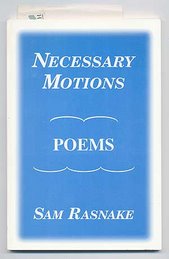five poems / five days #10
from my anthology of must read (a)merican poems
Dennis Brutus
A Special Cell
So there may have been
a shadow – an extra shadow –
in that dim dark cell
where shadows, somehow, never lifted
hovering over me, benign
from that cantankerous
busy-body fussing old man
urging always extra effort
extra willingness to endure.
June 9, 2004
from Remembering Soweto 1976
Brutus’ note: “One cell where I was kept at the Fort Prison before being sentenced, I was told was the cell where Mahatma Gandhi had been kept.”
*
As an activist against apartheid in South Africa, Dennis Brutus, born in Zimbabwe but raised an educated in South Africa, was arrested, several times, for his outspoken comments. He served time in the prison labor camp on Robben Island – alongside Nelson Mandela and Walter Sisulu. While in prison, his first collection, Sirens, Knuckles, Boots, was published in 1962 and won the Mbari Poetry Prize. Brutus now lives in Pittsburgh, Pennsylvania.
“A Special Cell” is a hard-edged poem that shows, with great economy, the price of loyalty to one’s beliefs – and how, if the cause is just, the price validates a life lived.
always extra effort
extra willingness to endure








